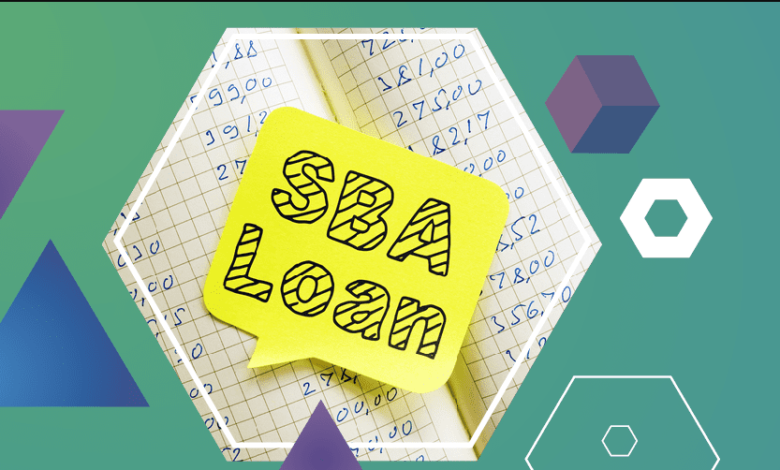what is an sba loan

SBA loans are small business loans provided by the Small Business Administration (SBA). The SBA is a government agency that helps small businesses in the United States by providing loans and other financial assistance. An SBA loan can be used to finance a variety of business activities, including buying or leasing a business property, starting or expanding a business, and purchasing equipment or supplies. The loan amount and terms will vary depending on the type of loan requested and the credit history of the applicant. To qualify for an SBA loan, the applicant must be a small business (defined as having fewer than 500 employees) and meet the credit and other requirements of the loan program. The loan must also be approved by the SBA’s Loan Review Board. If you are interested in obtaining an SBA loan, be sure to consult with a qualified financial advisor.
1. What is an SBA Loan?
The Small Business Administration (SBA) is a federal government agency that provides support to small businesses through a variety of programs and services. One of the most popular programs offered by the SBA is its loan program.
The SBA loan program provides loans to small businesses for a variety of purposes, including start-up financing, working capital, and expansion. Loans are available from a number of SBA-approved lenders, including banks, credit unions, and online lenders.
The SBA does not directly lend money to small businesses. Instead, it provides a guarantee to lenders for a portion of the loan, which reduces the risk for the lender and makes it more likely that the loan will be approved.
To qualify for an SBA loan, businesses must meet certain size and credit requirements. Loans are also subject to a number of fees and charges, including an origination fee, a guarantee fee, and closing costs.
The SBA loan program is one of the most popular and most beneficial programs offered by the agency. Loans are available for a variety of purposes, and the SBA guarantee makes it more likely that businesses will be approved for financing. However, it is important to understand the requirements and fees associated with the program before applying for a loan.
2. How Can an SBA Loan Help Your Business?
The U.S. Small Business Administration (SBA) is a federal government agency that provides financial assistance to small businesses. One of the ways the SBA helps small businesses is through loans.
SBA loans are government-backed loans that are provided by banks and other lenders. The SBA guarantees a portion of the loan, which reduces the risk for the lender and makes it easier for small businesses to get approved.
There are several types of SBA loans, including 7(a) loans, 504 loans, and disaster loans. Each type of loan has different terms and purposes.
7(a) loans are the most common type of SBA loan. They can be used for a variety of purposes, including working capital, inventory, and equipment.
504 loans are used for major capital expenditures, such as real estate or equipment. They have longer terms and lower interest rates than 7(a) loans.
Disaster loans are available to businesses and homeowners in areas affected by natural disasters. They can be used to repair or replace damaged property.
SBA loans can be a great option for small businesses that may not be able to get traditional financing. They typically have lower interest rates and longer terms than other types of loans.
If you’re thinking about applying for an SBA loan, it’s important to compare different lenders and compare the terms of the loans. You can use the SBA’s Loan Matching Tool to find lenders that offer SBA-backed loans.
3. What Are the Benefits of an SBA Loan?
The U.S. Small Business Administration (SBA) is a federal agency that provides financial assistance to small businesses. One of the ways the SBA helps small businesses is through its loan programs.
The SBA does not directly lend money to small businesses. Instead, it guarantees loans made by private lenders, such as banks, to small businesses. This guarantee protects the lender from loss if the borrower defaults on the loan.
The SBA offers several types of loans, each with its own eligibility requirements and terms. The most common type of SBA loan is the 7(a) loan.
The 7(a) loan program is the SBA’s primary loan program. It provides financing for a wide variety of small business purposes, including working capital, inventory, and equipment.
7(a) loans are available from a variety of lenders, including banks, credit unions, and online lenders. The maximum loan amount is $5 million.
The SBA also offers other loan programs, such as the 504 loan program, which provides financing for major capital investments, such as real estate or equipment.
The benefits of an SBA loan include:
– Low interest rates
– Long repayment terms
– Flexible eligibility requirements
– Access to capital that might not be available from other sources
The interest rates on SBA loans are typically lower than the rates on other types of loans, such as credit cards or personal loans. The long repayment terms and flexible eligibility requirements make SBA loans an attractive option for small businesses.
If you are thinking about applying for an SBA loan, be sure to shop around and compare offers from a variety of lenders.
4. What Are the Disadvantages of an SBA Loan?
The Small Business Administration (SBA) is a U.S. government agency that provides support to small businesses and entrepreneurs. One of the ways it does this is through guaranteeing loans made by private lenders to small businesses.
An SBA loan can be a great option for small businesses that might not otherwise qualify for a loan. However, there are some potential disadvantages to consider before taking out an SBA loan.
1. Higher Interest Rates
SBA loans typically come with higher interest rates than loans from traditional lenders. This is because the SBA is taking on some of the risk of the loan by guaranteeing it.
2. Longer Repayment Terms
SBA loans also typically have longer repayment terms than traditional loans. This means you’ll be paying back the loan for a longer period of time, which can make it more expensive in the long run.
3. Strict Eligibility Requirements
To be eligible for an SBA loan, your business must meet certain criteria. For example, your business must be for-profit, and it must have less than 500 employees.
4. Limited Funding
SBA loans are also generally smaller in size than traditional loans, which can limit the amount of funding you can receive.
5. Extensive Documentation
The SBA requires a lot of documentation in order to process a loan application. This can include financial statements, tax returns, and business plans.
Overall, an SBA loan can be a great option for small businesses. However, there are some potential disadvantages to consider before taking out an SBA loan. Make sure you weigh the pros and cons carefully to decide if an SBA loan is right for your business.
5. How to Qualify for an SBA Loan
The U.S. Small Business Administration (SBA) is a federal government agency that provides financial assistance to small businesses. SBA loans are one type of financial assistance that the SBA provides.
SBA loans are made by private lenders, such as banks, credit unions, and non-profit organizations. The SBA guarantees a portion of the loan, which reduces the risk to the lender and makes it more likely that the lender will approve the loan.
How to Qualify for an SBA Loan
There are several requirements you must meet in order to qualify for an SBA loan. These requirements include:
1. You must be a small business, as defined by the SBA.
2. You must have a good credit history.
3. You must be able to show that you have the ability to repay the loan.
4. You must have a sound business purpose for the loan.
5. You must use the loan proceeds for a business-related purpose.
If you meet all of the above requirements, you may be eligible for an SBA loan.




